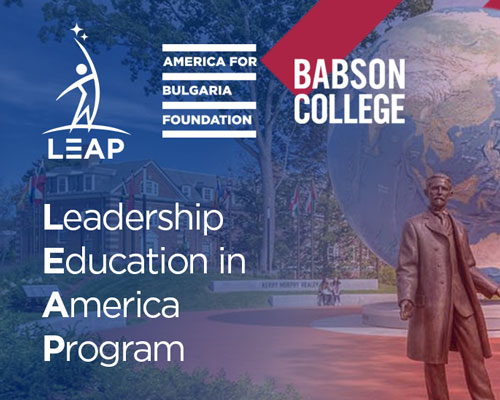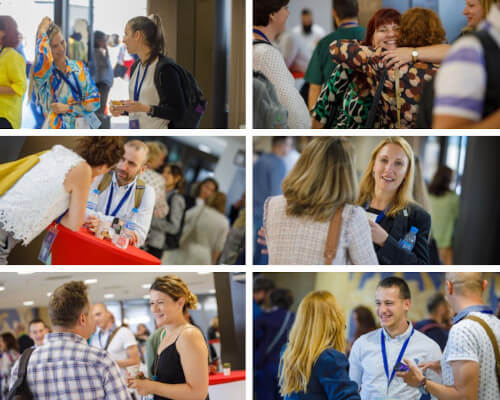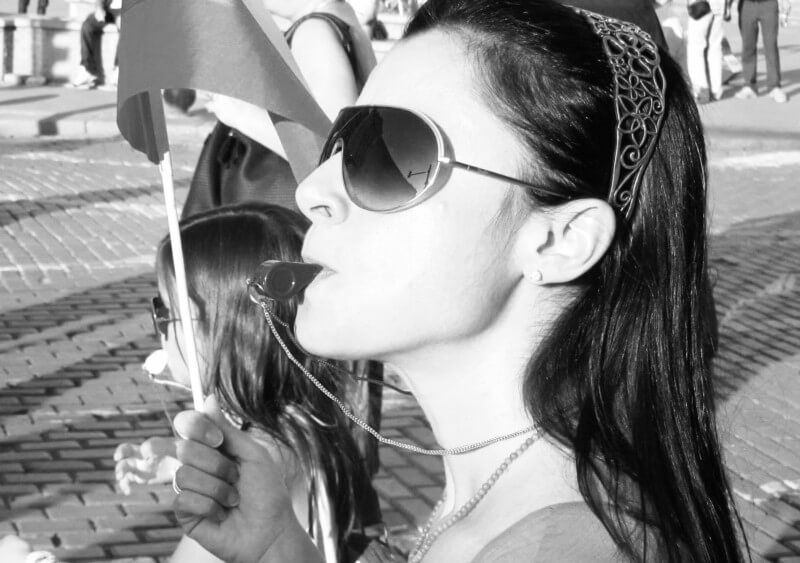
In her thirty-plus-year career, Bulgarian opera prima Alexandrina Pendatchanska has received international distinctions from the Antonín Dvořák Competition in Karlovy Vary, the International Vocal Competition in Bilbao, and the UNISA singing competition in Pretoria as well as three Grammy Award nominations. She has sung some of the most beautiful roles in the operatic repertoire at the leading opera and concert venues worldwide.
Through her music as well as her journalistic texts and other forms of civic engagement, over the years Ms. Pendatchanska has made known her strong views in support of democratic freedoms and justice. Her civic activism is partly motivated by her family history: considered politically inconvenient, her mother’s father fled to the West after being prevented from practicing his profession, while her paternal grandfather spent three years in the Belene concentration camp on charges of nationalism. Ms. Pendatchanska is also driven by her conviction that the path of democracy and membership in the Euro-Atlantic family is best for her country’s development.
Ms. Pendatchanska is a member of the European Cultural Parliament and until April this year of the Public Council of the Bulgarian National Radio, a position she left in protest of the dissemination of fake news and propaganda on the radio’s airwaves.
We spoke with Ms. Pendatchanska about the divisions in Bulgarian society, about the socially engaged artist, and about what it means to be a patriot today.
America for Bulgaria Foundation: You are very socially engaged: you publish positions and analyses in the media and regularly participate in protests and other civil actions. You express your strong views even through your art. What informs your civic engagement?
Alexandrina Pendatchanska: I was 19 years old in 1989, and I participated in absolutely all student strikes, rallies — everything that happened to get Bulgaria to move forward. It was painful. There has always been a small — much smaller than we imagine — but very vocal part of Bulgarian society, people who, in addition to being afraid to take responsibility for their own lives, have all sorts of ties to the totalitarian regime I grew up in, to the absence of freedom then.
[During that regime] we pretended to work, we pretended that everything was fine, and we all knew that none of that was true. We lived a lie. When I was admitted to the Komsomol [the communist youth organization, ed.], I read its statute and told my friend, “But this is a lie. None of this is true!” I had known since I was a child that we were living a fiction. The moment this fabrication collapsed, it was natural for me to take the side of truth, light, freedom in the most unequivocal and firm way… I don’t want to live in this past anymore; I want to forgive it, to leave it behind. Each of us had to overcome this past in some intimate, private way, we never overcame it together, and that made everything more difficult…
[During the wave of protests] in 2013, I wished for it, and it finally happened in 2021 — unification in the name of a common goal, in the name of destroying yet another lie that we lived for 12 years, a new charade that everything is fine. This absolutely rotten, corrupt, and corrupting government did not collapse by itself, though; we brought it down together. People everywhere, left- or right-leaning, we realized that there is a common evil that had to be destroyed. Bulgaria as a society has taken a new path, and this would not have been possible if we had not come together.
Of course, now, with the war in Ukraine, dividing lines are emerging between us again, and these are very difficult to overcome because they are also external. Here, we are talking about other, far more serious dependencies. We are facing the danger of division again.
ABF: In 2013, you called for national unity above politics in the name of country and “statehood, law, and normalcy,” but this kind of patriotism is becoming rarer nowadays. Opposite views are often denounced as unpatriotic. What does it mean to be a patriot today, do you think?
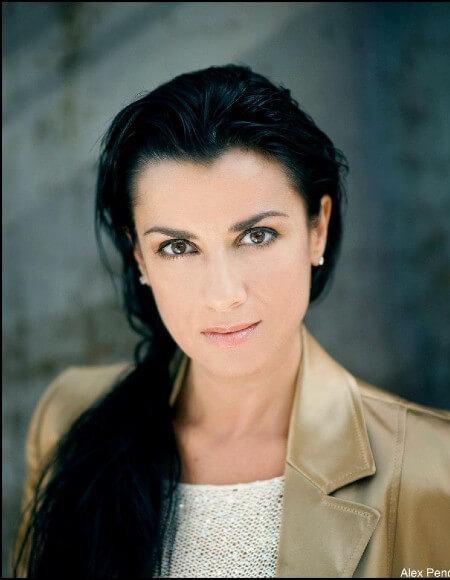
A.P.: I consider myself a patriot — an authentic, real patriot who is in love with the place I grew up in, and I am very sad that certain circles have appropriated this wonderful word and this wonderful feeling, which is the love, affection, passion [for your country], the connection to your roots, to your place, to your family, to the people you grew up with, to the land you ran on as a child — everything that represents our homeland. These circles perceive patriotism as something that excludes, and I perceive patriotism as something unifying, inclusive. There are many of us here, we are different, and we have always been, and this is one of the best features of this place. It is a crossroads, a meeting place for many nations, a place where we have lived together, and this is one of its virtues.
ABF: According to some analysts, the division in Bulgarian society over the war in Ukraine boils down to the division between pro-Western and pro-Russian forces in the country. How strong do you think this opposition is, and is Bulgaria’s path forward still clear?
A.P.: I don’t think there is that much disunity. I believe that the vast majority of the Bulgarian population shares this idea [the idea of Bulgaria as part of the Euro-Atlantic world, ed.]. This question has never ceased to stand, though. There has always been a backward part of our society — small but very vocal — pulling Bulgaria back, literally to the East, to the past, to that nightmare. We have been divided many times, we haven’t been very well organized, we’ve acted a little chaotically, and yet we succeeded. Bulgaria is a member of the European Union and NATO.
As we have seen, in the face of necessity, the Euro-Atlantic alliance has consolidated in an unprecedented way in recent years. When there is a clear goal and when the choice is so clear — the normal choice, the choice to protect a sovereign people that has been attacked — then the forces of normalcy and the free world united quickly. And we are part of this world. Much as some small groups would like it, there is no going back.
ABF: On the subject of Ukraine, some people are talking about a “middle ground,” about neutrality. Can we be neutral in this situation?
A.P.: I don’t know how these people are raising their children… Are they teaching them to stand by and watch if they see someone being beaten or killed in the street? This is the neutrality they are talking about. It is morally unacceptable. There can be no question of neutrality. You cannot stand idly by, watching with folded arms as someone is being beaten or killed. This is what’s happening now — a sovereign state has been attacked by an aggressor who kills children, rapes women… If this happens to us, would we want the world to remain indifferent? I do not accept neutrality in any way.
ABF: In April, you resigned your membership of the Bulgarian National Radio’s Public Council in protest of the spread of fake news on its airwaves. Why did you decide to express your protest in this way? Don’t you stand a better chance of change something from “inside” than from outside?
A.P.: I was invited to the Council in early 2021. There are public figures, journalists, artists in it. I accepted because I thought I could be useful, and I was useful. When the radio budget was cut last year, I personally wrote a letter [protesting the reduction] and we succeeded; the radio budget was restored. We were useful to the radio and its staff at a very important moment.
Peter Volgin’s broadcast “Politically Incorrect” has been discussed several times in the Council, and on several occasions, I was strongly opposed to taking a stand on this issue. A turning point was the arrest of Belarusian journalist Roman Protasevich, who was detained after his Ryanair flight was forced to land last June. Volgin then made a comment on air that I thought was unacceptable because he was attacking not only his colleague but also freedom of speech. In addition to attacking him, he allowed himself to spread false information about this man… Then we all came up with an official statement and called for action. We were told that we had no right to interfere in the radio’s editorial policy and that freedom of speech meant that all kinds of opinions could be expressed, including opinions against freedom of speech.
After the start of Russia’s war in Ukraine, we came up with the position that the radio should take a stand and monitor what is happening in these broadcasts. The radio’s executive director promised to monitor the issue, which was done, and the management came up with recommendations, but this did not lead to any results. Then I said to myself, we can write letters and hold meetings all we want, but I do not want my name to be associated with a news organization that is unable to deal with such a serious and important issue as the dissemination of fake news.
I am convinced that I made the right decision because I see that Russian propaganda continues to spread on its airwaves. I find this embarrassing, especially in times of war. There are things that you cannot compromise with.
ABF: How do you practice good information hygiene: how do you protect yourself from fake news and propaganda?
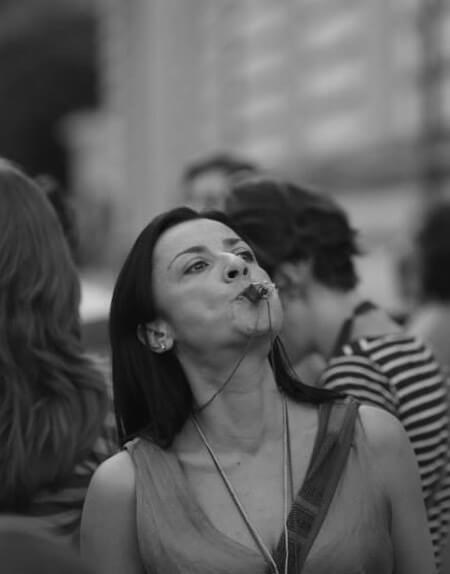
A.P.: I read only reliable sources — and I read a lot. I talk to my children all the time. We discuss everything, seek out sources, share sources, discuss dangers.
This phenomenon is not only Bulgarian; the whole world has a problem with alternative reality. There was an American president who spoke of “alternative truth”… There are millions of people around the world who believe, for example, that the earth is flat. The world has a problem with the truth.
We have been living in a state of hybrid war even before the war in Ukraine, in part because of Putin’s 20-year rule and the huge investments his regime has made in the information war. This hybrid war is making it impossible for us to unite around the acknowledgment of simple facts and is making us talk about alternative facts… There are no alternative facts. The facts are what they are. The earth is round. Ukraine was attacked by Russia.
Social networks have contributed to the spread of this falsehood. Through these media — because social networks are in fact media — the world has been flooded with fake and false information. This process must be regulated in the future, the information that reaches people must be regulated and verified… Everyone is in danger of becoming a victim, as shown by Bulgaria’s national radio. A leading radio journalist referred to something unverified that he found on the internet, which in the end turned out to be a lie.
The world needs to protect its information security.
ABF: Is there a role for art in socio-political processes? Is art toothless, or does it have the power to achieve actual results?
A.P.: No, of course it isn’t [toothless]. You can see how many renowned Russian artists have sided with Ukraine. Their voice is extremely important and valuable. It is no coincidence that Putin is so afraid of them; in Russia, artists supporting Ukraine are banned. Many of them have left the country. These people are not powerless, but of course conflicts are resolved with weapons. So, my voice right now would only be useful insofar as I insist on arming Ukraine, and I will use all my resources to ensure this insistence of mine reaches decision-makers. This is what an artist can do. An artist can choose to not remain silent. An artist can resist through the means of their art, they can make their views heard. What I would like to see happen at the moment is for Bulgaria, my country, to help Ukraine with weapons, and I am using my voice for what I believe in. This is the role of artists: we must do what we must, come what may. I am trying to do everything in my power, and I don’t feel powerless as an artist at all.
ABF: On May 9, Europe Day, we celebrate peace and unity on the European continent. In the absence of either this year, what did you hope for?
A.P.: The world is moving forward and will continue to move forward. Dictators like Hitler and Putin only slow down the process, but in the end all dictators end up the same way. A battered Europe recovered with joint efforts after the Second World War, and although it was paid for with a lot of pain and blood, Europe created the most powerful union in the history of mankind, of which we have the chance to be a part. I am sure that Ukraine will soon join this union, because it is currently defending its values with its blood.
We live in a world that is more connected than ever. A world in which freedom and good will prevail because most people on this planet want them. Those against these values are far fewer. The only way for them to succeed is if all of us, the large majority who want to live in freedom and peace, remain indifferent, neutral. We cannot and will not allow this to happen!
Photos by Vasil Garnizov
